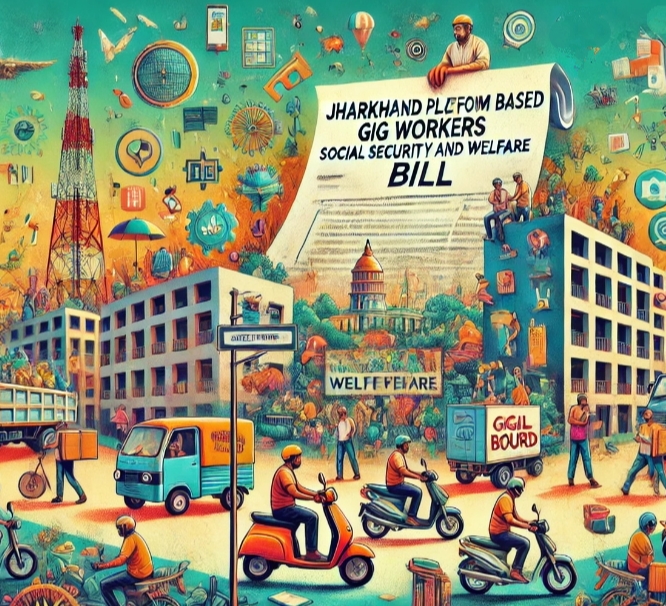श्रम परमो धर्म:
-

Author: Mihir Wagh is a 4th-year law student at Gujarat National Law University, Gandhinagar The Employees’ Provident Funds and Miscellaneous Provisions Act, 1952 is a landmark piece of legislation. It governs provisions regarding social security schemes for millions of people. These schemes play an instrumental role in the benefit of the salaried class, as the schemes…
-

Author: Raghuvansh Bhutani is a 2nd-year law student at Rajiv Gandhi National University of Law, Patiala. The right to disconnect allows employees to disengage from work-related communications outside working hours without repercussions. This article examines its relevance in India, drawing insights from Australia’s legal framework, where employees can refuse employer contact after hours under reasonable conditions. India’s toxic overwork culture, highlighted…
-

Author: Jasvan Ram is a 4th-year law student at Tamil Nadu National Law University For Persons with Disabilities (PwDs), the assurance of equality and non-discrimination can often seem unattainable without reasonable accommodations that transform these rights into a tangible reality. Notwithstanding legal frameworks such as the UNCRPD and India’s RPWD Act of 2016, workplace inclusion…
-

Author: Tanya Sara George and Arnav Sinha are 3rd-year law students at Maharashtra National Law University, Mumbai. The article examines the rise of independent contractors (ICs) in India’s healthcare sector, revealing a significant legal lacuna in the liability for malpractice or negligence by medical ICs. The authors argue that vicarious liability principles, which exempt hospitals…
-

Author: Shubham Milind Thakare is a 2nd year-law student at National Law School of India University, Bangalore The arbitrability of workplace disputes—determining which conflicts can be resolved through arbitration—has profound implications for worker rights in India. While the 2020 Industrial Relations Code permits arbitration for certain labour disputes, Indian courts apply public policy principles from…
-

Author: Rupakshi Sharma & Enaakshi Majumdar are recent graduates of Symbiosis Law School,Pune The Present Article is an attempt to scrutinize the feasibility of Amazon India’s “Project Ashray” (an initiative to build resting points for delivery agents) which is at the precipice of becoming a scapegoat of whitewashing by the e-commerce giant to conceal its grotesque labour-law…
-

Author: Abhishek Sanjay & Vishesh Prakhar are 2nd Year Students at NALSAR University of Law Hyderabad. The paper aims to highlight the extent of the labour misclassification issue in India and the relevancy of such a discussion in the present scenario. The authors analyse the present legal framework in India, its lacunae and ambiguities and the jurisprudential…
-

Author: Shubhranshu is a 3rd Year Student at NALSAR University of Law, Hyderabad. The article examines the Jharkhand Platform Based Gig Workers (Social Security and Welfare) Bill, analysing its provisions, strengths, and areas for improvement. It highlights the bill’s attempt to provide gig workers with social security by introducing measures such as a welfare board,…
-

Author: Mohammed Saud-ur-Rehman Siddiqui is a 4th-year law student at Dr B.R. Ambedkar National Law University, Haryana. This article examines the legal status of law firms in India vis-à-vis labour legislation, with particular focus on the Code on Social Security, 2020. It critically analyses the judgment in Lalit Bhasin v. Appellate Authority, which excluded advocate…
-

Author: Vedant Choudhary is a student of law at Symbiosis Law School, Pune. The Employee Compensation Act is the principal statute for the compensation of employees for injuries arising out of employment. This article seeks to understand whether Myocardial Infarction, commonly known as “Heart Attack” falls within the scope of injury under the ECA, and…